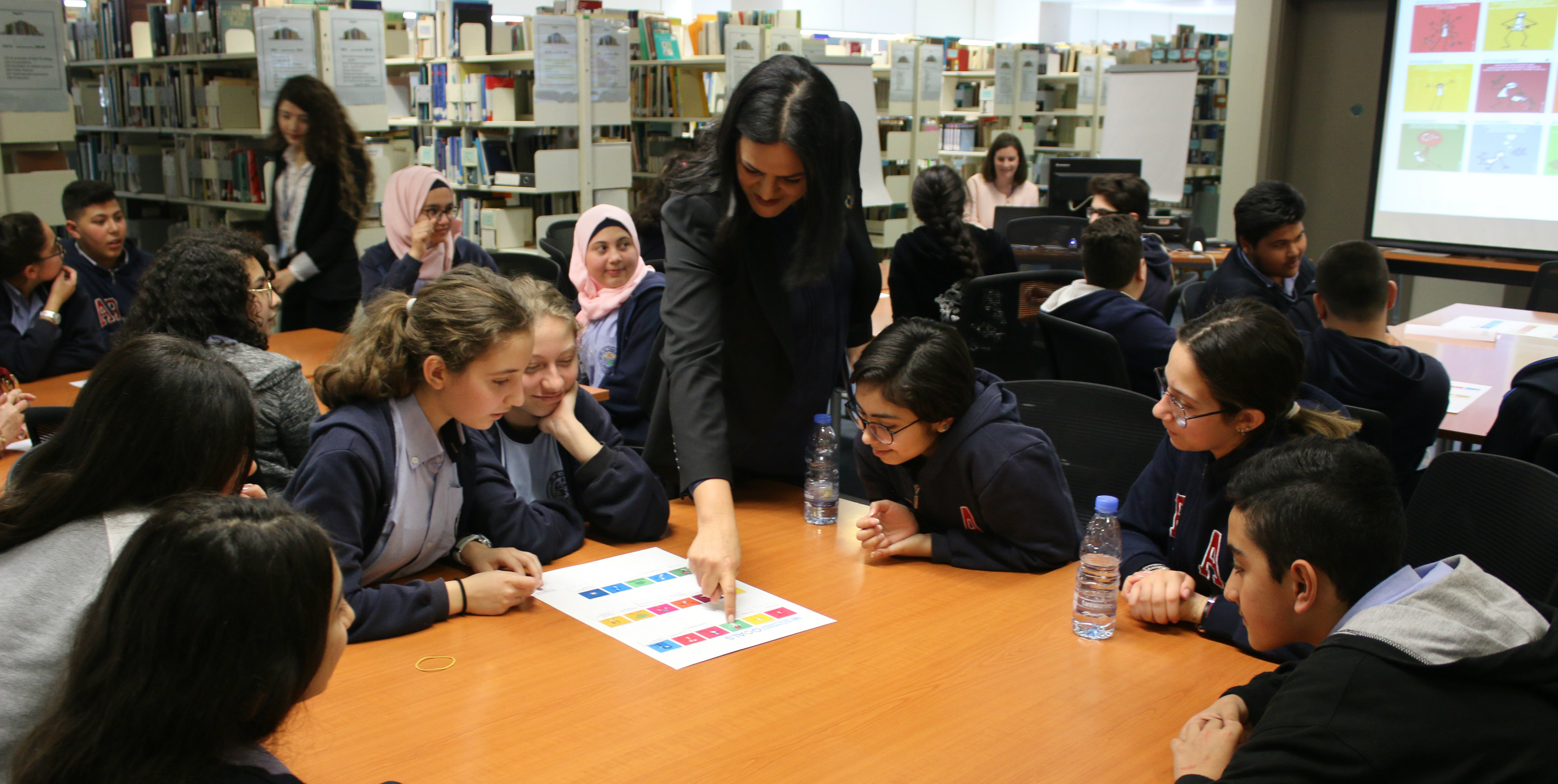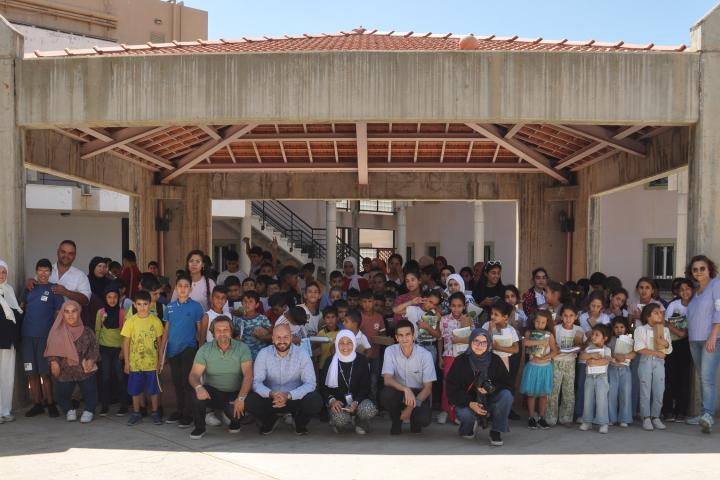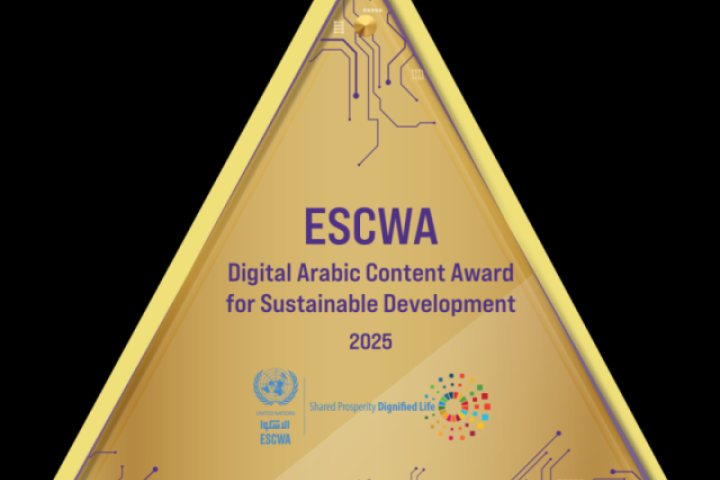Press release
15 Mar 2018
Beirut, Lebanon
Lebanese students from Maqased school become ‘SDG Champions’ at ESCWA

ESCWA Executive Secretary Mohamed Ali Alhakim received the students and introduced them to some of the history of the UN’s arm in the Arab region, which was established in 1973 in Beirut, with intermittent moves to Baghdad and Amman due to conflict and instability in Lebanon several decades ago.
Mr. Alhakim highlighted that the next ten years are going to feature dynamic work as the UN is engaged in a very ambitious programme—the 2030 Agenda for Sustainable Development and its 17 SDGs. He spoke about the urgent need to address gender inequality in the Arab region, with a focus on reducing women’s unemployment.
Asked by one of the students whether the SDGs could be achieved in Lebanon by their deadline in 2030, Mr. Alhakim highlighted the establishment of the National Committee for SDGs by the Lebanese Prime Minister Saad Hariri, noting that these efforts are encouraging.
He underscored that many of the projects undertaken by ESCWA are transboundary given the commission’s regional approach, such as activities linked to food security, water, renewable energy, trade, and illicit financial flows.
ESCWA
Mona Fattah, a Social Affairs Officer continued the briefing to the young visitors on the different roles of ESCWA as voice, think tank and advisor to its 18-member countries.
“We conduct studies, collect data, and identify priority issues in the countries, particularly those that might create instability or cause conflicts,” she said, adding that accordingly, ESCWA proposes solutions in the form of policy recommendations to the respective governments.
Ms. Fattah also highlighted the importance of partnering with various regional stakeholders who are involved in tackling similar economic and social issues, including civil society organizations, academia and the private sector
Global Goals
The head of the ESCWA Unit on the 2030 Agenda, Karima El-Korri, presented the 17 SDGs in more detail, underlining the ways in which the global goals are based on five key principles—knows as the Five Ps: People, Planet, Prosperity, Peace, and Partnership. She also shed light on some of the existing synergies and trad-offs between the goals to explain how they are all interrelated, and why it is therefore crucial to address them in a holistic manner.
The visit took an even more interactive turn with an SDG game where students were asked to match SDG icons with the names of the goals, followed by trivia questions. Additional videos on the UN were also shown to illustrate how ESCWA is just one part of a much larger global UN system.
One of the students, Ghina Taoush, was grateful for the experience: “I have always wondered what ESCWA is and what it does, but now I know that it provides support to Arab governments,” she said.
At the end of the gathering, students were awarded with “SDG Champion” certificates as a token of implicit commitment to work together for a better future. Many shared how eager they were to bring the knowledge back to their local communities and explore how they can support the SDGs in their daily lives to ensure a sustainable future.
*****
For more information:
Nabil Abu-Dargham +961-70-99 31 44; email: dargham@un.org
Ms Rania Harb: +961-70-008879 harb1@un.org
Ms Mirna Mahfouz: +961-70-827372 mahfouz@un.org
Mr Haidar Fahs: +961-70-079021 haydar.fahs@un.org



